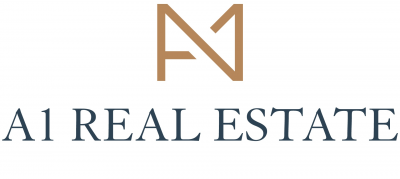
Hôtel vs appart-hôtel vs appartement meublé : quelle option pour un séjour de 3 à 12 mois à Paris ?
Temporary rental, or short-term rental, refers to the rental of furnished accommodation for a period of up to several months by transients.
This is mainly aimed at people with transfers and professional missions, but also at tourists, or people in transition (moving, returning from expatriation, etc.).
The law of 6 July 1989 defines the principal residence as "housing occupied for at least eight months a year, except professional obligation, health reason or force majeure, either by the lessee or his spouse, or by a dependent within the meaning of the Construction and Housing Code." (Article 2).
The lease of principal residence is in terms of legislation mainly governed by:
Namely :
The lease of principal residence is in terms of legislation mainly governed by:
- The provisions of the Construction and Housing Code,
- The general provisions of articles 1713 et seq. of the Civil Code,
- L oi n°89-462 of 6 July 1989,
- Law No. 2014-366 of 24 March 2014, known as the ALUR Law.
- Until the decree of 29 May 2015 defining all the mandatory information and annexes that must appear in a lease of principal residence, decree applicable since 1 August 2015.
Namely :
- The law of 7 October 2016 leaves the possibility for municipalities to determine a registration procedure for any rental to transient customers.
- Since October 1, 2017, the city of Paris requires obtaining a registration number before being able to temporarily rent your main residence (this number must appear on all housing ads).
Good to know : it is possible to benefit from a tax reduction corresponding to two-thirds of your accounting fees. It will then be necessary to choose the real regime and join a CGA (Approved Management Center) whose membership fees can also benefit from a tax reduction
If you wish to rent your property for a period of more than 120 days / year, the accommodation will no longer be considered as a main residence, but as a second home. This is why it will be mandatory to go to the town hall to declare it.
At the time of registration, the JORF decree of 30 April 2017 specify the information to be provided by the lessor:
In some municipalities, landlords must also apply for a change of use permit (the change of use is temporary. At the end of this one, the dwelling returns to its main use of conventional dwelling.). This is particularly the case for the city of Paris.
Note: The city of Paris is not currently concerned by the obligation of the rental permit, but this is the case for many municipalities in Ile-de-France.
At the time of registration, the JORF decree of 30 April 2017 specify the information to be provided by the lessor:
- Full identity of the registrant
- The address of the dwelling and the invariant number of the housing tax
- The status of the dwelling (principal residence or not)
- The periods during which the declarant wishes to rent his property
- The number of rooms and beds
- The level of classification of the quality of furnished tourism
In some municipalities, landlords must also apply for a change of use permit (the change of use is temporary. At the end of this one, the dwelling returns to its main use of conventional dwelling.). This is particularly the case for the city of Paris.
Note: The city of Paris is not currently concerned by the obligation of the rental permit, but this is the case for many municipalities in Ile-de-France.
What are the tax obligations?
Some tax obligations apply to owners:
> What is Non-Professional Furnished Rentals (LMNP)?
- Income tax return. The income resulting from the furnished rental of which you are the owner-lessor, as well as that which comes from a potential sublease, are subject to income tax in the category of industrial and commercial profits (BIC).
> What is Non-Professional Furnished Rentals (LMNP)?
- Pay social security contributions. From the moment the rental brings more than 23 000 € / year, it is mandatory to register with the Social Security of the Self-employed and to pay social contributions. In certain cases, and thanks to certain derogations, landlords will be able to pay contributions to the general social security scheme.
- Pay tourist tax. Tenants are asked to pay a tourist tax to the municipality. The cost varies between 20 cents/night/person (for a bed and breakfast) and 3 € for a furnished 5 stars. This cost may vary depending on the accommodation but also on the municipality.
Ce qu’il faut retenir :
- Temporary rental, or short-term rental, refers to the rental of furnished accommodation for a period of up to several months by transients.
- This is mainly aimed at people with transfers and professional missions, but also at tourists on holiday, or people in transition
- The law of 6 July 1989 defines the principal residence as "housing occupied for at least eight months a year".
- If you wish to rent your property for a period of more than 120 days / year, the accommodation will no longer be considered as a main residence, but as a second home. This is why it will be mandatory to go to the town hall to declare it. This is why it will be mandatory to go to the town hall to declare it.
- Some tax obligations are imposed on owners: declare income, pay social contributions and pay a tourist tax.

You want to
to sell in Paris or its surroundings ?
Contactez-nous
Posted on 03/04/2023 by
Andy LECUYER




